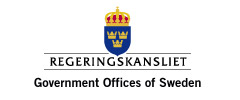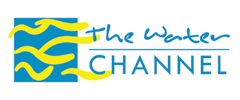EWA Georgia: "Ecological agriculture as an alternative option for women from rural areas
"Empower Women - Benefit (for) All (EWA)"
01.04.2014 | WICF Project
| Countries: | Georgia |
| Donors: | Ministry of Foreign Affairs of the Netherlands |
| Duration: | 01/2012 - 12/2015 |

WECF supports its EWA partners in increasing economic self reliance and political participation of 5,000 men and women (70%) in low income rural and peri-urban region through capacity building on sustainable economic development and through international experience sharing and policy advocacy.
Although geographically located in the Caucus of Southwestern Asia, the mountainous country of Georgia is a part of Europe. Georgia gained its independence after the fall of the Soviet Union in 1991. After a turbulent start of sovereignty infiltrated with corruption and injustice, Georgia gained its footing with the 2003 Rose Revolution, which triggered the transition towards a democratic government and state. The country’s attempt to a more prosperous future was interrupted during the 2008 clash with Russia over the undisputed territory of South Ossetia and Abkhazia. The clash with Russia consequently made the two breakaway provinces occupied areas.
The country’s political arena is male dominated. In 2013, the number of women in parliament was 11% with 21% serving in the Cabinet or as Ministers and only 10% were part of the local self-government bodies.
After the Rose Revolution, which triggered Georgia’s transition towards a democratic government, the country began to focus on gender equality and equal opportunities of both men and women. However, Georgia’s struggle moving towards democracy has been hampered by economic uncertainties and ethnic conflicts. The root causes of these challenges have sprouted into high levels of migration, unemployment and poverty – all of which have had harmful effects on women and men. In addition, especially in rural areas, cultural and traditional patriarchic influences have fueled discrimination against women who are persistently faced with disadvantages towards economic and political achievements.
The lack of assistance and support from the State makes life very difficult for rural communities in Georgia. Women are marginalized from access to opportunities and advancement when not living in urban spaces. WECF partner NGOs working in the rural areas of Georgia have put a heavy emphasis on women’s empowerment trainings, agricultural skill and community development. Women are resourceful and have a zest for educational opportunities in order to learn about business skills and enhance their chances to develop. The EWA project promotes Women’s Leadership and Empowerment.
The EWA project focuses on livelihood improvement in order to empower women economically and, next, politically. Five partners, each implementing its own activities, contribute to these outcomes: Social Development Center Akhaltsikhe (SDCA), Rural Communities Development Agency (RCDA), Georgian Ecological Agricultural Association (SEMA), Women NGO PAROS and The Greens Movement of Georgia/Friends of the Earth Georgia. The first four are implementing NGOs, skilled in community mobilization and working with women (groups) on livelihood improvement and small business support as well as leadership and saving groups. Their main target groups are rural women, CBOs and village authorities. RCDA runs two well-operating resource centers. The Greens Movement works on WatSan and Energy policy analysis and influencing on national level in relation to Gender. The project strives to increase women’s involvement on all levels, but also involves and benefits men.
Download here the report on agribusiness opportunities within the current EWA project implementation in Georgia.
Related News
Help girls in Kunduz become self-sufficient
WECF started crowdfunding for Afghan NGO Katachel to become economically self- sufficient with successful sewing project
01.07.2017
WECF contributes to Asian Development Bank Country Gender Assessment of Tajikistan
Country Gender Assessment of Tajikistan re-examines the gender equality situation in this Central Asian country and identifies critical issues
01.08.2016
Case studies from the EWA project in Uganda
In Uganda, WECF works with local partner organisations to introduce gender sensitivity trainings and conservation agriculture. Two participants in the trainings share their views
29.02.2016
Empower Women - benefit All Uganda: Conservation Agriculture increases yield of the farmers
Master thesis of Afke Jager from Wageningen University shows that use of Conservation Agriculture (CA) leads to higher yield of 30% on average
07.01.2016
Water, Sanitation and Gender Equal Development
International conference organised by WECF and FOE Georgia in Tiblisi, Georgia, gave concrete examples gender equal local sustainable development projects
18.12.2015
WECF partner Gertrude Kabusimbi Kenyangi Wins Wangari Maathai Prize!
Collaborative Partnership on Forests honours Gertrude Kabusimbi Kenyangi
14.09.2015
Teach a woman how to harvest, and her family and community will benefit for a lifetime
WECF's EWA programme “Empower Women, Benefit for All” in rural Kyrgyzstan leads to women empowerment, income generation for women and improved living standards
07.08.2015 | Carmen Chan
Meet Kalys: the woman who helped providing water access for her village
WECF's EWA programme “Empower Women, Benefit for All” in rural Kyrgyzstan leads to women empowerment, income generation for women and improved living standards
07.08.2015 | Carmen Chan
Female deputies of Kyrgyz National Parliament commit to women empowerment and improved access to water and sanitation
A high-level stakeholder meeting took place on 28 May 2015, at the National Parliament (Jogorku Kenesh) of Kyrgyzstan in the framework of the Forum of Women of the Jogorku Kenesh
27.07.2015
Kyrgyz deputies are concerned about water, sanitation and hygiene conditions in villages
Deputies of Kyrgyz Supreme Council visit villages to assess WASH issues in schools and kindergartens
22.06.2015











































